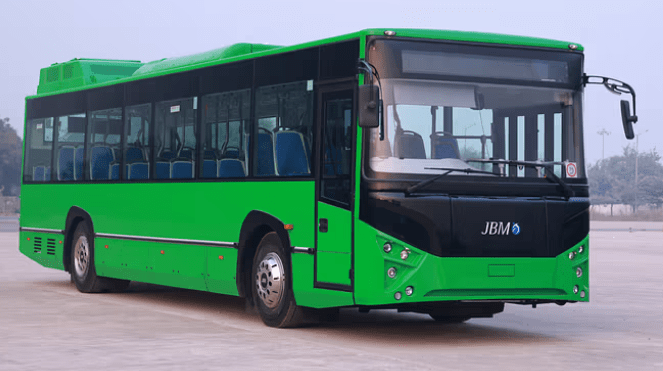
Under the PM e-Bus Sewa Scheme-2, JBM Ecolife Mobility Pvt LTD., a JBM Auto Limited subsidiary, has been ordered a sizable 1,021 electric buses. Worth around ₹5,500 crore, this project is a part of India’s attempts to increase environmentally friendly public transportation. The buses will be placed in 19 cities in Gujarat, Maharashtra, and Haryana, therefore enhancing the electric mobility system of India. With JBM’s total electric bus order book exceeding 11,000 units, this new arrangement supports its industry leadership.
Increasing Electric Mobility Around India
Targeting tier-2 and tier-3 cities, the PM e-Bus Sewa Scheme-2 is a government-backed project aiming at modernizing public transportation with electric buses. The project intends to lower urban pollution and carbon emissions adding more environmentally efficient buses, therefore enhancing connection even while reducing pollution. The Payment Security Mechanism (PSM), which guarantees prompt payments to bus operators and there supports industry financial stability, is a crucial component of this initiative.
Covering manufacture, deployment, and maintenance, JBM Ecolife Mobility will handle the end-to- end execution of the project. These 1,021 electric buses are scheduled to cover 32 billion passenger e-kilometers over the next 12 years, therefore greatly reducing CO₂ emissions almost 1 billion tons.
The Dedication of JBM Auto toward Green Public Transportation
For almost ten years, JBM Auto has been a major participant in the public mobility scene in India. Two thousand electric buses the company has already put into use in Africa, Europe, the Middle East, and India. With a 20,000 bus annual capacity integrated electric bus manufacturing facility in Delhi-NCR, it is positioned as a significant worldwide provider in the scene of electric transportation.
Emphasizing the mission of JBM Auto, Vice Chairman and Managing Director Nishant Arya said, “We are happy to join in this endeavor to boost public mobility across India. This sequence captures our attention on offering environmentally friendly public mobility options. JBM is trying to produce environmentally conscious and easily available electric mobility.”
By means of this development, JBM Auto hopes to cover 3 billion e-kilometers over the next three years and serve around 20 billion passengers, so supporting India’s clean energy targets.
Final Thought
A turning point in India’s path toward environmentally friendly transportation is the PM e-Bus Sewa Scheme-2. The most recent purchase from JBM Ecolife Mobility not only increases the use of electric buses but also supports India’s resolve to lower carbon emissions. The organization is greatly influencing the direction of urban mobility offering dependable and clean public transportation options. A big step toward India’s climate targets and a better future for millions of people is this project.
